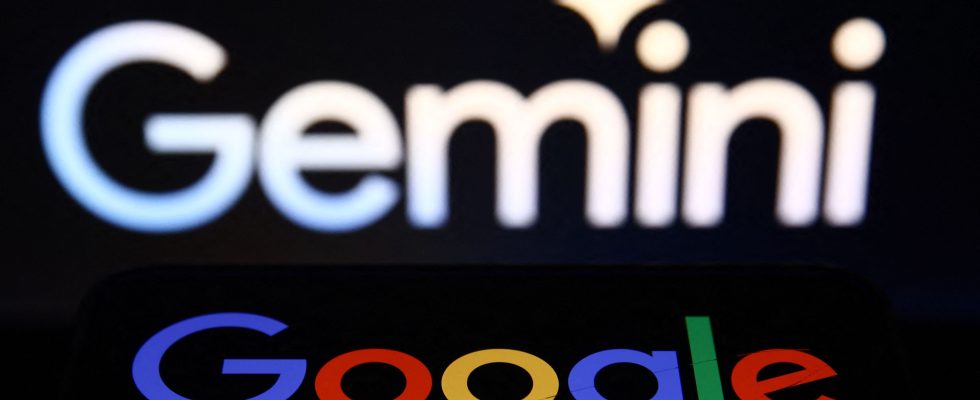No one will take it away from him. OpenAI will go down in the history books, on November 30, 2022, as the company that for the first time allowed humanity to communicate with a computer as easily as it would with a friend, a colleague, a confidant or assistant. Its conversation agent, ChatGPT, improved by various updates of its pioneering language model (LLM), GPT, and the valuable support of the giant Microsoft, is used by 100 million people every week. But a year later, the cavalry arrives. Loudly.
>> To subscribe to the Le 1 p.m. éco newsletter, Click here
Google DeepMind presented its own artificial intelligence model called Gemini on Wednesday, December 6. In its most powerful version, initial evaluations of the machine indicate that it outperforms GPT-4, and even certain human experts, based on the MMLU test measuring AI abilities in law, math, and even physics. Prowess that the first challengers of ChatGPT, from Claude (Anthropic) to Mistral via Llama (Meta), Ernie (Baidu) or Grok, the AI designed by Elon Musk’s teams, have never managed to achieve For now. No more than Google itself, with Bard, its first attempt.
The second attempt was the right one: Gemini sets the bar very high. In a video that is as promising as it is disturbing, it must be admitted, the AI manages to suggest different knits based on a photo showing two balls of wool placed on a table. The program gradually recognizes a guitar or a duck based on a simple sketch being made by hand, or understands that a man bending backwards while waving his arms imitates the famous scene of Matrix where Neo dodges Agent Jones’ bullets. Its multimodal particularity (the LLM has been trained on tons of texts, images and sounds) means that there is no longer any need to write to it so that it can reason.
Tomorrow, we will show and talk to the AI, which will understand us perfectly and guide us, promises Google through Gemini. On computer, but not only. AI will also be integrated into the latest “Pixel” phones from the Mountain View firm. A new “nano” version will run without access to the Internet or the cloud, cloud computing. Who knows, the day after tomorrow, where it will be established. A robot ? Google DeepMind demonstrated this astonishingly this summer. Eyes are now turning to GPT-5, OpenAI’s response expected in 2024. Google DeepMind versus OpenAI: the AI race is being played out – for the moment – between these two giants.
